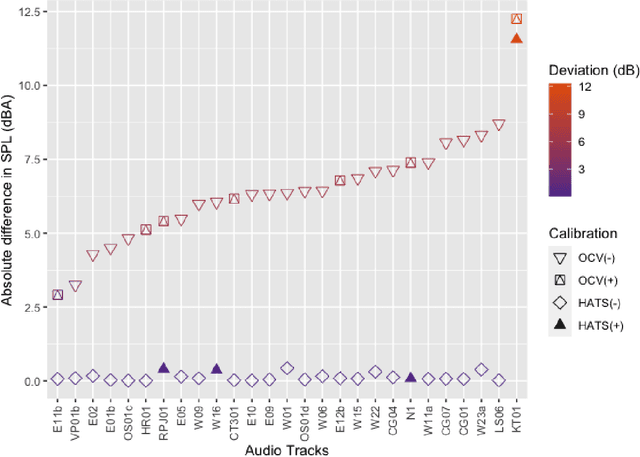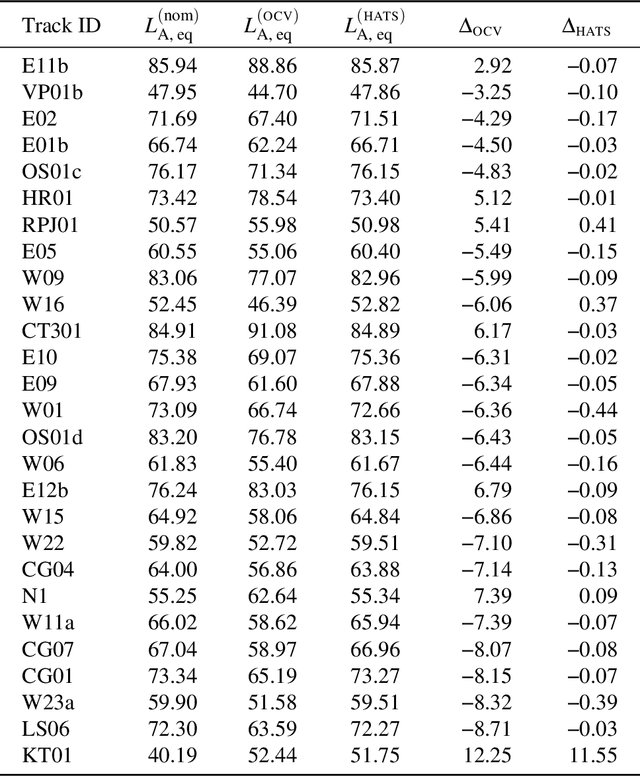Yun-Ting Lau
Preliminary assessment of a cost-effective headphone calibration procedure for soundscape evaluations
May 10, 2022



Abstract:The introduction of ISO 12913-2:2018 has provided a framework for standardized data collection and reporting procedures for soundscape practitioners. A strong emphasis was placed on the use of calibrated head and torso simulators (HATS) for binaural audio capture to obtain an accurate subjective impression and acoustic measure of the soundscape under evaluation. To auralise the binaural recordings as recorded or at set levels, the audio stimuli and the headphone setup are usually calibrated with a HATS. However, calibrated HATS are too financially prohibitive for most research teams, inevitably diminishing the availability of the soundscape standard. With the increasing availability of soundscape binaural recording datasets, and the importance of cross-cultural validation of the soundscape ISO standards, e.g.\ via the Soundscape Attributes Translation Project (SATP), it is imperative to assess the suitability of cost-effective headphone calibration methods to maximise availability without severely compromising on accuracy. Hence, this study objectively examines an open-circuit voltage (OCV) calibration method in comparison to a calibrated HATS on various soundcard and headphone combinations. Preliminary experiments found that calibration with the OCV method differed significantly from the reference binaural recordings in sound pressure levels, whereas negligible differences in levels were observed with the HATS calibration.
 Add to Chrome
Add to Chrome Add to Firefox
Add to Firefox Add to Edge
Add to Edge